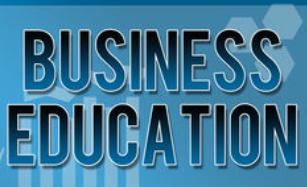





|
|
|
|
|
CONTACT 7322817122 7324238052 |
|
RESTAURANT MANAGEMENT |
|
Have you always dreamed of running your own restaurant? Maybe you want to manage a restaurant for a famous chef. What goes on beyond the dining room in a restaurant can determine whether a restaurant is a wild success or a dismal failure. In Restaurant Management, you’ll learn the responsibilities of running a restaurant—from ordering supplies to hiring and firing employees. This course covers the different types of restaurants; managing kitchen and wait staff; food safety and hygiene; customer relations; marketing; using a point-of-sale system; scheduling employees; and dealing with difficult guests. Restaurant Management will prepare you for a steady career, whether you plan to buy a fast food franchise, operate a casual sit-down restaurant, or oversee a fine-dining establishment.
Restaurant Management: What You Need to Know
Identify different types of restaurants. Recognize the importance of customer needs. Manage and support staff. Track expenses and profit. How Restaurants Work
Identify the different roles in the front of house. Recognize job responsibilities in the kitchen. Understand how the point-of-sale system works. Explore how the restaurant manager functions in this hierarchy. Food and Workplace Safety
Understand essential safety regulations in the kitchen. Recognize the importance of proper employee training. Identify key food safety practices. List common food-borne illnesses. Understanding Recipes, Techniques, and Equipment
Understand how to read a recipe. Recognize ingredient quantities and preparation instructions. Explain some basic cooking techniques. Explore the function of commercial cooking equipment. Managing a Restaurant Staff
Make good hiring decisions. Recognize the importance of teamwork. Understand how to make a work schedule. Manage employee problems and challenges. Professional Communications and Ethics in Restaurant Management
Use active listening skills to hear and communicate effectively. Discuss the importance of nonverbal communication. Understand the ethical guidelines appropriate for a restaurant manager. Recognize the importance of employee-friendly policies. Marketing and Customer Service
Recognize the importance of customer service. Identify key ways to improve customer service. Discuss the types of customer feedback. Understand the components of a marketing plan. Building a Restaurant Management Career
Fill out a job application. Write a résumé and cover letter. Prepare a portfolio. Make a self-care plan to handle stress and balance work and life obligations.
based on cultural traditions. |
